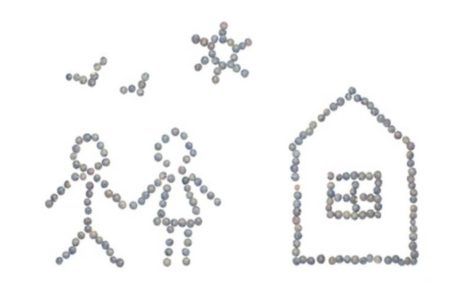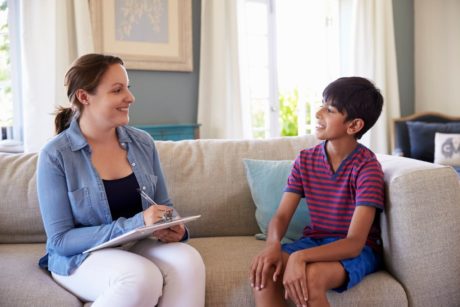Learn how to help children recover from the trauma of abuse. Read more.
Access all courses in our library for only $9/month with All Access Pass
Get Started with All Access PassBuy Only This CourseAbout This Course
Who this course is for:
- Anyone working with or training to work with abused children will find this course of benefit
What you’ll learn:
- You will learn about Mary Walsh’s innovative trauma recovery program pioneered in the UK
- You will learn about the nature and significance of childhood trauma
- You will develop a sound understanding of the impact of childhood trauma
- You will explore the relationship between sexual abuse and trauma
Requirements:
- No prior knowledge is required to take this course
This is one of three courses presented by Mary Walsh based on her extensive experience of working with young children traumatized by abuse. The course highlights the detrimental and potentially lifelong effects of abuse if appropriate support is not offered in a timely fashion. For too long it was assumed that, once children were removed from an abusive situation, they would gradually “get over” their experience. This assumption failed to recognize that traumatic experiences can remain with children throughout their lives. Indeed, we are increasingly recognizing that so much of people’s experience of mental health problems in adulthood has its roots in unresolved childhood trauma. A program of trauma recovery is therefore needed, and that is what Mary and her team developed.
The course gives an overview of the three-pronged approach used in the recovery therapy system, incorporating individual therapy, life story work and therapeutic parenting Mary and her team used over many years and now adopted by a wide range of child care professionals. Recognized as a leading thinker in the field. Mary Walsh has created a therapeutic system geared towards helping children recover from their traumatic experiences. This course will give you important insights into how you can play an important role in helping abused children achieve recovery.
Our Promise to You
By the end of this course, you will have learned how to work with abused children.
10 Day Money Back Guarantee. If you are unsatisfied for any reason, simply contact us and we’ll give you a full refund. No questions asked.
Get started today!
Course Curriculum
| Section 1 - Introduction | |||
| Introduction | 00:00:00 | ||
| Section 2 - Module Companion E-Book | |||
| Module Companion E-Book | 00:00:00 | ||
| Section 3 - Children Trauma And Recovery | |||
| Video 1 | 00:00:00 | ||
| Video 2 | 00:00:00 | ||
| Video 3 | 00:00:00 | ||
| Video 4 | 00:00:00 | ||
| Section 4 - Conclusion | |||
| Conclusion | 00:00:00 | ||
About This Course
Who this course is for:
- Anyone working with or training to work with abused children will find this course of benefit
What you’ll learn:
- You will learn about Mary Walsh’s innovative trauma recovery program pioneered in the UK
- You will learn about the nature and significance of childhood trauma
- You will develop a sound understanding of the impact of childhood trauma
- You will explore the relationship between sexual abuse and trauma
Requirements:
- No prior knowledge is required to take this course
This is one of three courses presented by Mary Walsh based on her extensive experience of working with young children traumatized by abuse. The course highlights the detrimental and potentially lifelong effects of abuse if appropriate support is not offered in a timely fashion. For too long it was assumed that, once children were removed from an abusive situation, they would gradually “get over” their experience. This assumption failed to recognize that traumatic experiences can remain with children throughout their lives. Indeed, we are increasingly recognizing that so much of people’s experience of mental health problems in adulthood has its roots in unresolved childhood trauma. A program of trauma recovery is therefore needed, and that is what Mary and her team developed.
The course gives an overview of the three-pronged approach used in the recovery therapy system, incorporating individual therapy, life story work and therapeutic parenting Mary and her team used over many years and now adopted by a wide range of child care professionals. Recognized as a leading thinker in the field. Mary Walsh has created a therapeutic system geared towards helping children recover from their traumatic experiences. This course will give you important insights into how you can play an important role in helping abused children achieve recovery.
Our Promise to You
By the end of this course, you will have learned how to work with abused children.
10 Day Money Back Guarantee. If you are unsatisfied for any reason, simply contact us and we’ll give you a full refund. No questions asked.
Get started today!
Course Curriculum
| Section 1 - Introduction | |||
| Introduction | 00:00:00 | ||
| Section 2 - Module Companion E-Book | |||
| Module Companion E-Book | 00:00:00 | ||
| Section 3 - Children Trauma And Recovery | |||
| Video 1 | 00:00:00 | ||
| Video 2 | 00:00:00 | ||
| Video 3 | 00:00:00 | ||
| Video 4 | 00:00:00 | ||
| Section 4 - Conclusion | |||
| Conclusion | 00:00:00 | ||





Consolidation of current mental health skills
With my current work as a Mental Health nurse, I experience the ‘tail end’ of the historical abuse of the child, and approaching the acute mental health setting as an adult is confronting and damaging. At times it’s difficult to comprehend the machinations of the ‘ongoing’ trauma lived by the client. This course and subject matter have helped considerably in understanding, but also reinforces further resources to collect for much more solid learning. This theoretical based course will give me an excellent understanding of issues around historical CSA/trauma and at least be empathetic to the clients needs.
very good
This course was very informative and well-researched, my one critique would be that subjects like Walsh’s three-pronged recovery model were not expanded on enough, while things like the broken leg analogy and non-medical use of the word trauma were expounded upon multiple times in two or three different videos.